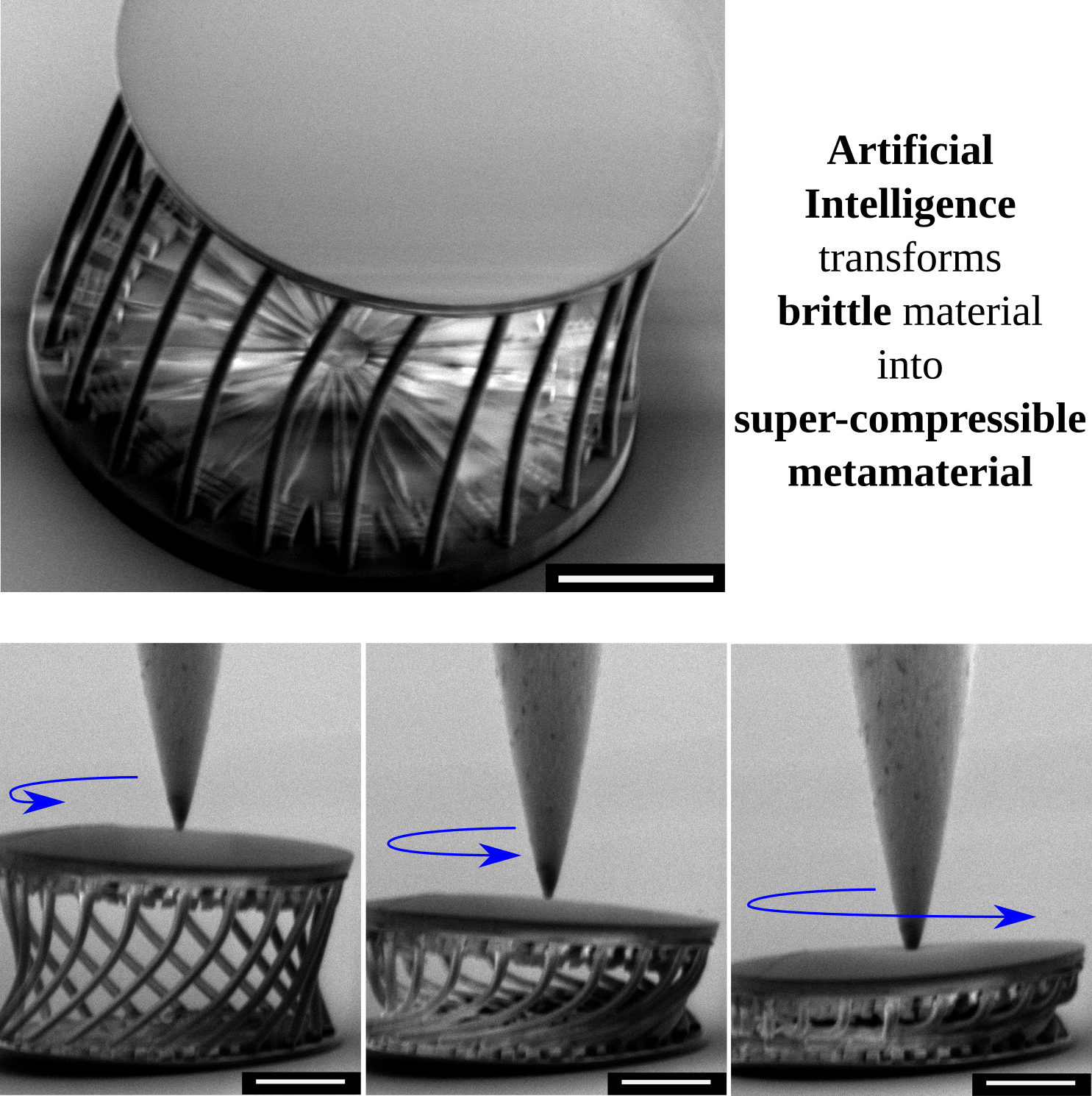TU Delft researchers design new material by using Artificial Intelligence only
Researchers at TU Delft have developed a new material without doing any experimental tests at all. The supercompressible but strong material was designed by using Artificial Intelligence (AI) only. AI gives you a treasure map and the scientist needs to find the treasure’, says Miguel Bessa, first author of the publication on this subject in Advanced Materials.
Foldable bicycle
Miguel Bessa, Assistant Professor in Materials Science and Engineering at TU Delft, got the inspiration for this research project during his time at the California Institute of Technology. At a corner of the Space Structures Lab he noticed a satellite structure that could open long solar sails from a very small package. Then he wondered if it would be possible to design a highly compressible yet strong material that could be compressed into a small fraction of its volume. ‘If this was possible, everyday objects such as bicycles, dinner tables and umbrellas could be folded into your pocket’.
Read the publication (Bayesian Machine Learning in Metamaterial Design: Fragile Becomes Supercompressible)
Inverting the design process
The next generation of materials needs to be adaptive, multi-purpose and tunable. This can be achieved by structure-dominated materials (metamaterials) that explore new geometries to achieve unprecedented properties and functionality. ‘However, metamaterial design has relied on extensive experimentation and a trial-and-error approach’, Bessa continues. ‘We argue in favor of inverting the process by using machine learning for exploring new design possibilities, while reducing experimentation to an absolute minimum.’
Machine learning
‘We follow a computational data-driven approach for exploring a new metamaterial concept and adapting it to different target properties, choice of base materials, length-scales, and manufacturing processes.’ Guided by machine learning, Bessa fabricated two designs at different length scales that transform brittle polymers into lightweight, recoverable and super-compressible metamaterials. The macro-scale design is tuned for maximum compressibility, while the micro-scale is designed for high strength and stiffness.
Untapped regions of the design space
Yet, Bessa argues that the most important aspect of the work is not the particular material that was created but the ability to reach untapped regions of the design space via machine learning. ‘The important thing is that machine learning creates an opportunity to invert the design process by shifting from experimentally-guided investigations to computationally data-driven ones, even if the computer models are missing some information. The essential requisites are that ‘enough’ data about the problem of interest is available, and that the data is sufficiently accurate.’ Bessa is a strong proponent of data-driven research in mechanics and materials science. ‘Data-driven science will revolutionize the way we reach new discoveries, and I can’t wait to see what the future will bring us.’
More information
Website Miguel Bessa
Metamaterial created with Artificial Intelligence that transforms a brittle material into a sponge-like material. Unlike a sponge, this metamaterial is stiff until a critical force is reached after which it becomes easily compressible.


